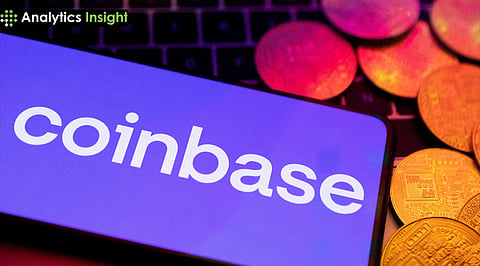

Coinbase has launched a regulated token sale platform that will allow U.S. retail investors to participate directly in primary token offerings for the first time since 2018. The exchange said the first sale will feature Monad, a layer‑1 blockchain project, and will run from 17 to 22 November.
The Coinbase token sale will offer 7.5% of Monad’s total supply and will use Circle’s USDC stablecoin for settlement. Coinbase plans to host roughly one sale each month with a structured request window of about one week. Investors submit purchase requests during that window rather than racing to buy in the first seconds, and a proprietary algorithm then distributes tokens.
The algorithm is designed to favour smaller purchase orders to ensure broader distribution. By filling allocations from the smallest bids upward, Coinbase hopes to prevent large investors from absorbing the majority of tokens. Eligible buyers must complete identity verification and pass compliance checks; tokens can only be purchased in USDC.
There are no participation fees for buyers; instead, issuers pay a percentage of the funds they raise. Through this model, Coinbase further positions itself as a compliant launchpad with built in transparency and investor protections.
Coinbase has introduced rules intended to discourage speculation and to protect the long‑term health of the market. The company said that participants who sell their tokens within 30 days of listing may receive reduced allocation in future sales. This loyalty‑based approach aims to reward long‑term holders and reduce the rapid dumping that caused price volatility during the initial coin offering boom.
The platform also locks tokens sold through it for six months; founders and affiliates cannot sell tokens over‑the‑counter or on secondary markets during that period unless Coinbase approves the sale and discloses it publicly. These measures should limit immediate sell pressure and align issuers’ incentives with project success.
Users who exit positions quickly will still be able to participate in future sales, but with lower priority. For issuers, the six‑month lockup prevents the founders from unloading tokens into the market and addresses behaviours common during past initial exchange offerings. Together, these rules aim to create a recurring market where rational participants balance short‑term gains against long‑term access to upcoming sales.
Coinbase will vet each project before listing, evaluating the team’s track record, token structure and vesting schedules. Furthermore, by requiring full KYC compliance and transparency before token allocations, the crypto exchange aims to avoid unregulated practices that dominated the previous token sales. Settlements in USDC and to be tracked on-chain will make movement of tokens visible, which adds accountability to the process.
Also Read: Coinbase Moves to Acquire BVNK in $2 Billion Stablecoin Expansion
The new platform builds on Coinbase’s $375 million acquisition of Echo, an on‑chain fundraising firm. Echo’s infrastructure forms the foundation of the system, enabling direct project‑to‑community fundraising and promising more transparent capital markets. Rival platforms such as Kraken and Flying Tulip are also exploring regulated token sales, highlighting a resurgence in public offerings.
Coinbase says its approach revives community‑driven fundraising while adapting to today’s regulatory environment. Monad’s debut sale, backed by previous funding rounds totaling $248 million, will test whether this model can attract broad participation and maintain market stability.
The ICO boom in 2017-2018 made billions, but there was no oversight, which led many projects to fail or were flagged as fraudulent. In response, regulators further tightened rules and token launches moved offshore. Coinbase's organization aims to address those weaknesses: smaller buyers are given priority, early selling is discouraged, and project teams will be subject to lockups.
If the initiative succeeds, it could reset the token launch playbook in the United States by combining regulatory compliance with wide access.
